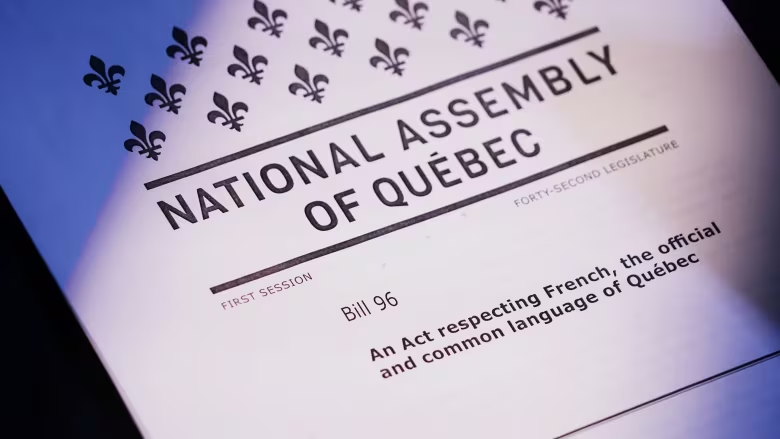
Bill 96: What businesses operating in Quebec need to know to comply with the new language requirements.
Since June 1, 2022, Bill 96, also known as the Act respecting French, the official and common language of Quebec, has been in force. This legislation introduces stricter language requirements aimed at promoting and protecting the French language in businesses and consumer services. Building on the Charter of the French Language (Bill 101), it introduces stricter measures to strengthen the presence of French in Quebec society.
In this article, we outline the key obligations for businesses operating in Quebec—whether local or international—and the measures they must implement to comply with these new requirements.
At Pacific Quebec, we understand the challenges and opportunities this law presents for businesses looking to connect more deeply with the Quebec market.
Context and objectives of Bill 96
The goal of Bill 96 is to slow the decline of French usage in Quebec by strengthening the Charter of the French Language. The legislation aims to ensure French remains the dominant and common language in all areas of public life, including workplace communications, customer service, and advertising. By doing so, the Quebec government seeks to protect the province’s cultural and linguistic identity while enabling citizens to live and work in French.
Key obligations for businesses
Language of work
Bill 96 requires businesses with 25 or more employees to ensure French is the predominant workplace language. This means:
- Internal communications (memos, emails, meetings, and official documents) must be in French. Employees wishing to use another language must make an explicit request.
- Administrative documentation: All administrative documents, including employment contracts and employee handbooks, must be available in French. This requirement extends the scope of Bill 101, which previously did not explicitly cover internal documents.
Advertising and marketing
All public signage and promotional materials in Quebec must prioritize French:
- French must visually predominate over other languages in terms of size, placement, and visibility. This applies to signs, outdoor displays, and promotional materials.
- Digital presence : Businesses must provide a French version of their websites, ensuring it is fully equivalent to versions in other languages. This includes: providing identical content and functionality for French and non-French versions of websites and ensuring apps, e-commerce platforms, and other digital tools comply with these requirements.
Customer service
Customer interactions, whether in person or through documents, must be available in French unless a client explicitly requests another language. This includes: contracts, invoices, estimates, warranties, and user guides.
Contracts and legal documents
Standard form contracts and legal documents offered to clients or partners must be in French, unless both parties explicitly agree to use another language. This includes commercial agreements, reinforcing Bill 101’s earlier provisions.
Employee training
Employee training materials necessary for job performance must be provided in French. If the content is available only in English, businesses must supply a translation or equivalent French-language training.
Sanctions for non-compliance
Bill 96 strengthens the powers of the Office québécois de la langue française (OQLF), enabling it to conduct inspections and enforce compliance. Unlike Bill 101, which primarily focused on awareness, Bill 96 introduces penalties. Fines are proportional to the company’s size and increase for repeat offenses, signaling the government’s commitment to strict enforcement.
Steps to ensure compliance
Businesses operating in Quebec should conduct a language audit of their operations and systems.
Key measures include:
- Review internal communications: Ensure that contracts, memos, and other documents are available in French.
- Update digital and public content: Revise websites, apps, and public signage to emphasize French.
- Train employees: Educate staff about new language requirements, especially those interacting with the public.
- Comply with contract requirements: As of June 1, 2023, standard form contracts must be provided in French before any agreement is finalized.
- Brand updates: By June 1, 2025, brands using non-French trademarks or business names must display French prominently.
- Register with the OQLF: Companies with 25–49 employees must register and comply with francization rules starting June 1, 2025.
Francization process
The francization process involves four steps:
- Registration: Businesses must register with the OQLF.
- Language analysis: The OQLF assesses the company’s compliance with French language norms.
- Implementation of a francization program: If non-compliant, businesses must adopt measures to increase French usage.
- Certification: Once compliance is achieved, businesses receive certification and must maintain these standards.
Conclusion
By strengthening the principles of Bill 101, Bill 96 marks a new phase in the protection of the French language in Quebec. While it introduces stricter requirements, it also offers businesses an opportunity to strengthen their connection with Quebec’s francophone audience. To fully embrace this transition, explore our article: Unlocking the potential of Quebec’s francophone market.
How Pacific Quebec can help
At Pacific Quebec, we simplify this transition with tailored support, including:
- Translation and linguistic adaptation: Ensuring your content not only complies but resonates with Quebec’s audience.
- Brand revision: Adapting slogans and campaigns to align with Bill 96 while reinforcing your image.
- Strategic guidance: Helping you navigate these changes seamlessly.
Adapting to Bill 96 isn’t just about compliance—it’s an opportunity to strengthen trust with Quebec’s culturally proud and linguistically vibrant market.
Contact us today for personalized guidance!

